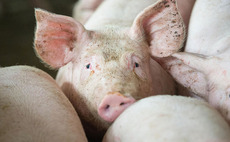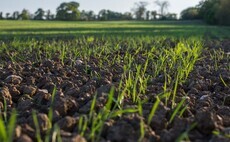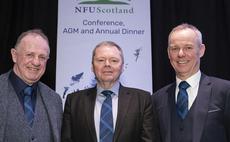
Matt Phelan is co-founder of The Happiness Index and author of Freedom to Be Happy, The business case for Happiness.
Growing up on a farm and witnessing my parents deal with industry challenges from BSE to crop failure and foot-and-mouth disease didnt make the link between happiness and farming instantly obvious to me.
Everyone who works in farming knows its more than just a career.
Farming is a calling not an easy calling and, as most farmers will quickly point out, the fields are not paved with gold.
Despite what you may read, 99 per cent of farmers are not running industrial beef units in the US or clearing rainforest in Brazil. Most of the farmers I met at the AHDBs AgriLeader Forum in February want to look after their families, tend their flocks and feed the nation.
Regen has emerged as a way of avoiding the need to choose between putting food on our tables and protecting the planet.
However, there are major benefits of farming with nature rather than against it that have been missed from the conversation, that positively impact the people who work in farming.
The health and well-being of everyone working on and with farms, from vets to agronomists, needs to improve and is likely to benefit from a more sustainable approach.
In parallels to cases of rugby players I grew up idolising, such as World Cup winner Phil Thompson joining a legal case and making the link between his dementia and training methods, I expect to see skeletons coming out of the farming cupboard related to health.
More and more farmers are talking about the link between their health and farming practices, such as spraying pesticides and asking whether that is a factor in illnesses such as Parkinsons that have emerged in their farming friends and families.
From The Farm Safety Foundations survey of 450 farmers below the age of 40, nearly all of respondents (94 per cent) said poor mental health ranked as the number one problem.
The health and happiness of farmers needs to improve just as much as the health of our soil, but the good news is they are linked.
As I pointed out in my book,Freedom to Be Happy, research has shown across every single industry that happier employees are more productive, more accurate in their tasks, more creative and their organisations perform financially better when those doing the work are happier. Farming is no different.
And here is the really interesting part
The food we eat impacts the way we feel, or more simply put, food equals mood. Serotonin is a neurotransmitter that sends messages throughout our body. It plays a role in emotions and, therefore, happiness levels. Our best estimate is that 90 per cent of the bodys serotonin is produced in the gut.
The food we eat, especially foods that contain chemical additives and ultra-processed foods, affects the environment in our gut where serotonin is produced.
As the food we eat impacts our gut, the food we produce on our farms impacts the health and mood of the nation.
The wellbeing of everyone who works in farming and the happiness and health of the nation is inextricably linked.
Fixing our soil and our farming is not just good for the planet, but it is also good for the people who work in farming.
So, where do we start?
Like all big journeys it starts with small steps. Farmers are currently under huge pressures, from financial to climatic, but like every great adventure, it starts with one small step.
The next time you see one of your peers, instead of inquiring about their latest yield or the price at market, why not simply ask how are you feeling?





















